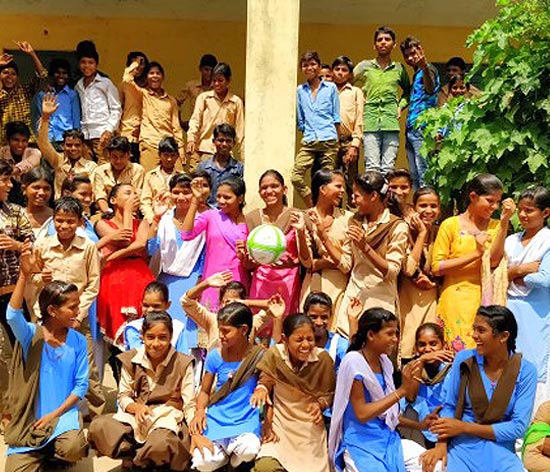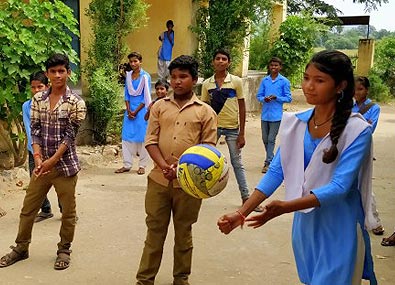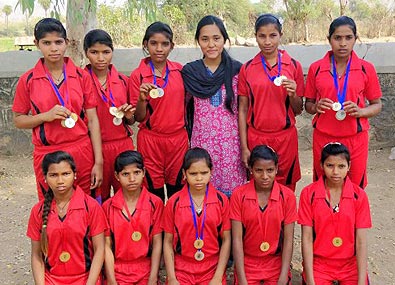
The Tata Trusts have a long history of women participating in sports and have spearheaded social change in some of the most intractable areas of need within the country over the past two decades. After joining India Fellow, a fellowship programme supported by the Tata Trusts, Deepshikha Chhetri began working with Kshamtalaya Foundation, a grassroots movement in changing the education ecosystem in the Kotra district of south Rajasthan. As part of her role, she began working in a government school at Bhoola, a remote tribal village in Kotra. Realising that there was no emphasis on sports and physical activities in the regular curriculum of the school for girls, and hence not enough inclusion, she offered to spend her time after school hours to engage girls in sports activities. However, the children expressed their inability to stay back after school, as they had to help their parents in the fields and in household chores. Deepshikha then arranged for time over the weekends to help them explore interests in art, music, dance and sports. She also introduced them to kho-kho and volleyball.

Over time, the girls started developing interest and stamina in sports as well as a penchant for learning new things. Noticing that the girls lacked the necessary resources, support, and exposure to the outside world, and that an all-boys team was representing the same school in kabbadi at a district-level sports tournament, she asked other teachers in the school if these girls could also be trained for the tournament. The teachers expressed skepticism over the idea, and felt that the girls wouldn’t be safe, and their parents wouldn’t provide consent. They went on to say that it was a big risk, especially considering that the girls wouldn’t be continuing these activities later in life.
No sooner, when Deepshikha heard that another sports tournament was being organised specially for the Scheduled Tribes by the Rajasthan Government, and knowing that the girls were keen to play, she directly approached the school principal – only to get his disapproval. Not the one to get discouraged easily, Deepshikha went ahead to meet the principal of Rohida School, who was the temporary authority for granting an order to the school where Deepshikha was teaching.

To her joy, these girls, who played a block-level tournament for the first time in Kojra, stood first in kho-kho. Moreover, the sports authority honoured Deepshikha with a memento meant for the chief guest. The girls’ team then went on to represent the Pindwada block at the Sirohi Pavilion for a district-level tournament, where they once again clinched victory. With their prominence rising, they were then selected to represent the Sirohi district at a state-level tournament. Here, although the team stood 4th, the government granted a monthly pension of Rs500 to each player as a token of recognition. Two of them have also been selected for the national-level tournament.
It has been an overwhelming experience and a matter of pride -- not just for Deepshikha and the students, but also for the whole village. Ramila* from 5th grade says enthusiastically, “I want to go for the tournament next time”. The teachers were indeed surprised and awestruck with the laudable performance of the girls, and unanimously agreed to support them wholeheartedly in sports from thereon.
Major accomplishments of women in sports can lead to important advances in gender equality and the empowerment of women and girls. Female participation in sports challenges gender stereotypes and bias, and is therefore a vehicle to promote equality. Women in sports leadership can help change traditional attitudes towards women, especially since sports is traditionally considered to be a male domain.
* Name changed to protect identity
This story was first published on IndiaFellow: http://www.indiafellow.org/blog/2018/06/in-this-village-girls-step-out-to-play-for-the-first-time/
